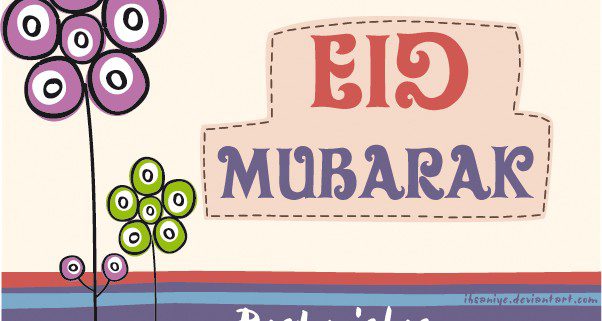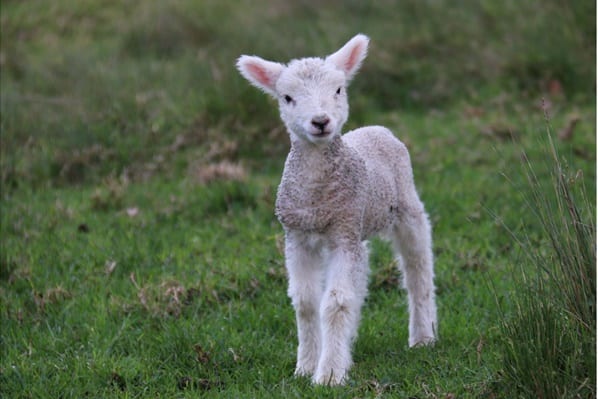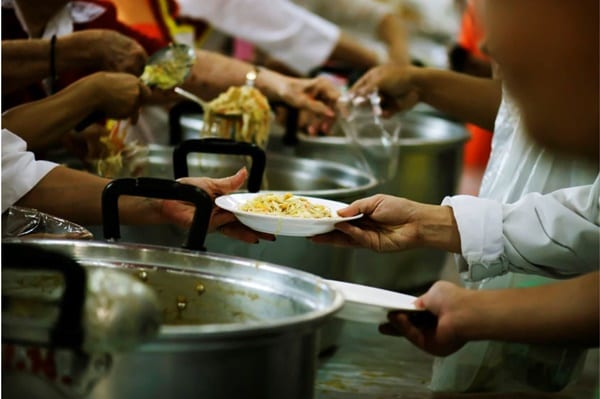
This guest post is by Lindsey Paris-Lopez, Editor in Chief at the Raven Foundation.*
In the name of God, Most Gracious, Most Merciful, Eid Mubarak from the Raven Foundation to all of our dear Muslim sisters and brothers! The holy month has drawn to a close, and all around the world, the ummah, or Islamic community, is celebrating the culmination of 30 days of fasting. Long daylight hours, at least in the northern hemisphere, have made this Ramadan among the most challenging in decades, with faithful Muslims refraining from food, drink and sexual intercourse while the sun is up – about 17 hours a day here in Chicago and similarly long hours around the world!
The hunger in the belly, the dryness of throat during the heat of the day, the restraint against urges of desire, are all meant to invite the soul into deeper relationship with God and neighbor and train the heart in the ways of compassion and civility toward friends and adversaries. In recent years, the sacred intentions of Ramadan have been further challenged by the heartbreaking violence raging throughout the world and devastating Muslim communities in particular. This violence is ravaging places like Afghanistan, where our 14-year-old war has all but been forgotten by media, Iraq, where ISIS is hypocritically and violently undermining the spirit of Islam in the name of Islam, Libya and Syria, where ISIS also has strong footholds, and Gaza, where the rubble from Israel’s latest bombing campaign one year ago, which killed over 2000 people, still has yet to be cleared, and none of the 17,000 homes destroyed have been rebuilt. These are just a few examples of the violence and aftermath of violence devastating predominantly Muslim countries around the world. For many, this day of celebration must instead be a day of mourning. So in the midst of this devastation and chaos, it is important to remember the promise of hope that is Eid al-Fitr (literally, “the lesser holiday,” the holiday after the fast).
Let us first ponder the meaning of Ramadan, the 30-day fast meant to tune the heart, mind, and soul toward God and break down walls and build bridges of compassion and solidarity between the wealthy and the poor. Muslims believe that it was during the month of Ramadan that the Qur’an was first revealed from God through the angel Gabriel to Prophet Muhammad. The Qur’an describes itself as a mercy and a guidance, and just like our world today and all times and places throughout history, mercy and guidance were desperately needed! My friend Adam Ericksen explains the world of pre-Islamic Arabia, the Jahiliyya, or Age of Ignorance, as a time when “fate” was thought to determine the rich from the poor, the winners from the losers, leaving little incentive for compassion or generosity. It was a world in which tribal gods were invoked in violent raids of conquest, and the wealth of a few created a world of desperation and misery for the poor, particularly the widow and the orphan. Sadly, this sounds very much like our world today. But it was in the midst of this violent and bleak hopelessness that Muhammad, tuning his heart and his mind to the needs of the poor and vulnerable, was able to hear the message of God: a message of ultimate peace, which is the meaning of Islam.
So it is appropriate that the month in which the Qur’an was revealed is a month of fasting, a time when the faithful enter into solidarity with the poor and hungry. As stomachs growl, those who are normally well-fed get a taste of the hunger 1 in 8 people worldwide experience (according to the 2013 statistics of the World Hunger Education Service). This voluntary material poverty is reminiscent of the world of Jahiliyyah into which the Qur’an was revealed, as faithful Muslims share the experience of the poor and suffering. Nothing dispels ignorance more than the active empathy that Ramadan requires.
This year, beyond connecting with the hungry, another profound way that active empathy was displayed was through a tremendous gesture undertaken by a coalition of Muslim networks working together to raise money for at least 8 African American churches that burned in the wake of the Charleston massacre. At a time when worship is brought into even sharper focus for Muslims, when spiritual connection and brother and sisterly solidarity is even more greatly pronounced, Muslims felt a desire to reach across faith boundaries. The burning of African American churches is an attack on the last, most sacrosanct refuge of the black Christian community, but Muslims reached out with an empathy deeply rooted in their faith experience and augmented by the holy month of Ramadan and raised over $30,000. In an interview for Al Jazeera America, spokesperson Linda Sarsour elaborated on the solidarity between Muslims and African Americans. This solidarity exists not only because the Muslim community includes African Americans, but also because Muslim Americans of all races are subjected to distrust and profiling on account of religion and the state of permanent US warfare in the Middle East. As Sarsour says,
We’re working on a lot of solidarity issues, including working against police violence, surveillance of political movements, building solidarity across the country. There’s so much more we can do together, and we’ve been able to do that in the past few years and it’s been remarkable.
The building of interfaith solidarity in the midst of the holy month is a powerful living example of Islam’s profound respect for the Abrahamic traditions and its tradition of peaceful interfaith relations. While the violence in Muslim country gets a disproportionate amount of media attention, positive interfaith relations especially among the Abrahamic traditions are integral to Islam. This year, Ramadan has been a connection to those in times of struggle and turmoil, a time to build people up an provide a refuge of compassion and love – not just for fellow Muslims, but across religious lines.
Furthermore, in this month of spiritual renewal, desires are reoriented from human concerns to divine will. As Muslims find themselves sustained throughout the day not by food but by the loving God and supportive community, they liberate themselves from things that society tells us we need. Negative mimetic desires for material possessions, which can lead to envy and conflict, are tuned out as Muslims become models for one-another of positive mimesis. Turning away from selfish desire to following the desire of God, whose will is for all to love one-another, Muslims during Ramadan find mutual support as they strive through the day to renounce wants masquerading as needs, instead focusing their hearts, minds, time, and resources on those most in need. As food intake decreases, prayer, charity and compassion increase, and the empathy born from this experience extends past the imposed 30 days. The hope is that after the fast comes to an end, Muslims will continue to choose to spend fewer resources on themselves and more in the way of charity toward the poor and vulnerable, relying always on God’s abundant providence.
Eid is a festival of this abundance. It is a holiday that symbolizes that the mercy of God’s message, lived out among the faithful, dispels ignorance. It is a reminder that the same God who sustains us through hunger and poverty generously provides us with a rich and beautiful world to enjoy and share. Eid is the promise of light after darkness, fulfillment after hunger, celebration after tribulation.
So many people worldwide, not only Muslims but people of all faiths and people who have lost all faith, are still in the midst of this tribulation and losing hope. Some have no food for a feast; some have no home to gather inside; some must bury their family instead of celebrate with them. May they be on the hearts and minds of all of those who can enjoy the feast today, and indeed all of us regardless of religion. As Muslims around the world come together today to celebrate the triumph of God’s mercy, abundance, and love, I pray that all of us may learn the lessons of Ramadan – empathy for the victims of violence and greed – so that we may all work toward a future Eid in which we invite all to the table – rich and poor, friend and foe, Palestinian and Israeli – to share the rich feast of God’s boundless love.
*Lindsey Paris-Lopez has a BA in English from Hollins University and an MA in Islamic Studies and Christian-Muslim Relations from Hartford Seminary. Her Master’s Thesis is entitled, “Blessing Israel and Palestine: A Loving Response to Christian Zionism.” A full-time mother, Lindsey finds herself learning as much about mimetic theory from her two young daughters as she does from Girardian scholars!
Stay in the loop! Like Teaching Nonviolent Atonement on Facebook.











